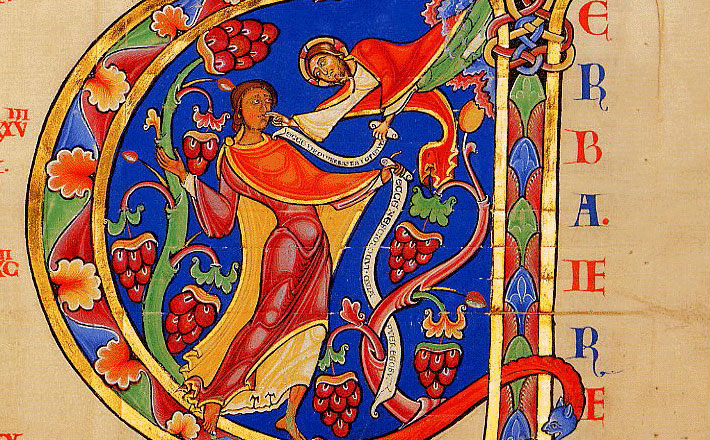Commentary on Matthew 16:21-28
Last week, the disciples got it, really got it.
At least for a moment.
Quizzed by Jesus about the wider public’s perception of his identity, the disciples say that Jesus is a prophet but more than a prophet too. He is the anointed one of God, gifted with God’s power, a power Jesus now turns over to his followers. Whatever we bind is bound. Whatever we loosen is loosened. Incredible power is now in our hands and with those hands we just might reshape the world!
Not so fast.
As I noted last week, the disciples must have been buzzing with excitement in the wake of this revelatory moment. They must have been dazzled by the fact that theirs would be the generation that would bear witness to the culmination of so many of God’s promises. The cries of slaves in Egypt, the yearnings of exiles in Babylon, the prayers of Roman subjects: these are all being heard by Jesus. God’s anointed will respond in a way that will transform the world and set things right. Nothing will ever be the same from this moment forward.
In this excitement, they get it half right. The world is shifting under their feet but not as they or we would have expected.
After all, the narrative seems to give little room for jubilation. Jesus does not pause for a moment of revelry when his disciples apprehend correctly who he is and what he will do. Celebration is not the first order of the day. Instead, we learn that it is not enough to speak aloud the fact that Jesus is the Messiah.
Speaking those words will require that our expectations and hopes be transformed. We learn that it is not enough to dream of a world transformed under the narrow set of parameters out of which we all tend to operate. Dreaming of this world will require that our imaginations expand beyond the calculus of power and influence within which we now function.
“From that time on,” Jesus starts to explain that the Messiah would not be embraced but rejected, not crowned but executed, not empowered by might but weakened by affliction.
What a disappointment this must have been, what a baffling shift in expectations. Clearly, this is not what Peter had imagined when he dared to speak the truth about Jesus’ identity. He spoke correctly though incompletely, for Peter begins to seek to correct the Messiah about the nature and scope of his mission. Listen, Jesus, this cannot be what God intends for you. There must be a different way. This is not what our deliverer ought to do. Suffering and dying is what we have all endured, prophet and ordinary person alike. You are supposed to be different. You are supposed to save us from all our enemies!
Jesus’ reproach is anything but subtle: “Get behind me, Satan!” Peter thus moves from the heights of recognition to the depths of rejection. What can this mean? Why is Peter now acting like the great deceiver: precisely because Peter is drawing Jesus away from the divinely ordained path that moves from suffering to the cross, from torture to shame.
And this is the path upon which any of Jesus’ followers must tread. The disciples are not just witnesses of Jesus’ suffering but participants in it. They just don’t get to tell about it. They actually will live through Jesus’ suffering in their own bodies. What does it look like to follow the Messiah, the anointed of God? That path is lined with crosses and paved with Jesus’ passion. This is a matter of life and death for his followers as much as it is for Jesus.
And yet we learn that this suffering, this cruciform existence is not all that there will be. The Son of Man will return and bring justice in his wake. Such justice is not merely the paying off of old debts or the settling of bitter scores. Instead, this judgment is a promise of deliverance.
The cross will appear to span finality. The cross will appear to be the end of the story for us all. But the promise Jesus makes here and the promises God has made from the beginning assure a future, a future in which justice blooms, a future in which the hungry are fed and the imprisoned are comforted (see Matthew 25:31-46). And that future is not a long way off (Matthew 16:28).
As I was writing this entry, I ran across these words by the late Maya Angelou: “I am grateful to have been loved and to be able to love, because that liberates. Love liberates. It doesn’t just hold — that’s ego. Love liberates. It doesn’t bind.” So, invite your sisters and brothers in hope to the kind of love and justice Jesus here commends. Ask them to imagine how “the Son of Man coming in his kingdom” occurs in great and small ways in their lives already and how that promise, assured by God’s Messiah, drives us into a hopeful future even when our present troubles are engulfing us. After all, Jesus walked this path before us. Jesus knew too well rejection and loathing. He has gone before us. Now, we will follow him in faith.
This narrative draws us to wonder whether we are willing to align our beliefs and the path upon which we walk and live. It’s a reminder that speaking the words “Jesus is the Messiah” requires only the exertion of the mind but living those words is a gift of God. Embodying hope in the Messiah is an act of God’s love.


August 31, 2014